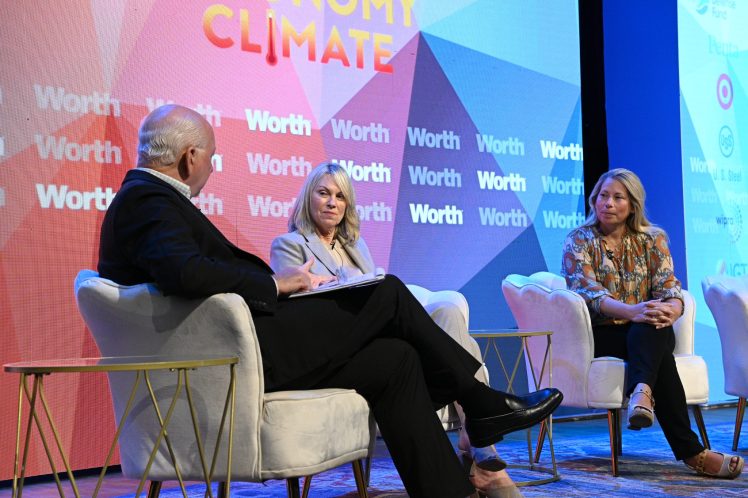Read excerpts from the discussion below.
BREYER: Using the social technologies that have been developed over the last six-plus years has empowered not only citizens, but workers who need to get retrained who don’t necessarily have the ability to go to a physical campus. We’re just scratching the surface. The Stanfords, the Harvards, the MITs, as well as many other great US research universities, will be disseminating important content online at a fraction of the cost of what it today costs students to go to Cambridge or Palo Alto or other physical campuses.
KIRKPATRICK: Sean, does it worry you that the same tools that are now empowering citizens around the world could become tools for repression?
PARKER: Governments have always utilized whatever communication mediums are available to conduct surveillance, either legally or illegally, and a lot of the surveillance has been far more intrusive than looking at information on social networks. There’s this wealth of data that’s publicly available, and the standard answer that we always come back to is: you’re choosing to make this information available. It’s completely up to you how you want to represent your life online. You can be extremely smart about how you broadcast and to whom you broadcast what information. The tools can be used for good and evil, and you sort of have to bet that our better angels will prevail and that the tools will primarily be used for good.
KIRKPATRICK: What will the media/entertainment universe look and feel like in three to five years?
BREYER: Social networks allow a degree of delivery and consumer experience that simply wasn’t there before. Television networks had no ability to touch their customers and understand them in the way they do today. So there’s a lot of talk about social television, a lot of startups focused on it, and it’s a huge opportunity.
KIRKPATRICK: There may be some opportunity for a craft model—a way for individuals to start creating jobs for themselves.
BREYER: We’re meeting college students now who are deciding not to go to Facebook or Google, but to start their own businesses, and they tend to be very craft oriented, or social oriented. A year or two later, when we see what they’re up to, they’ve created businesses with 10, 15, 20, 50 employees. It may be marketplaces like Etsy, where they’ve decided to create and reach their customer in a deeper way than through nontraditional means. We’re seeing an explosion of that kind of employment here in the US, and elsewhere—China, Brazil, many of the emerging markets. It doesn’t get captured in any of the national policy discussions.
KIRKPATRICK: What other industries are likely to be transformed in the near term?
PARKER: Politics is the most obvious one. Taking money out of politics is doable through social media, because ultimately volunteers and people working for campaigns are getting paid to go and collect votes, collect pledge cards. That can be done so much more efficiently on the Internet. The potential for disruption in the political process and the removal of money, by technology and by technocrats who are trying to reform the system, is enormous. It may not happen in this upcoming election cycle, but we’ll start to see signs of it. Literally anything you want to know from any perspective is available on the Internet, and, I think the way to take advantage of that is to teach kids how to learn differently. Kids aren’t being taught how to learn in an environment where information is provided in a nonlinear fashion and it’s not condensed into a textbook. It requires constant skepticism. You have to second-guess every piece of information you come in contact with, but you quickly realize that second-guessing your own conclusions about what you’ve just read is the scientific method.






